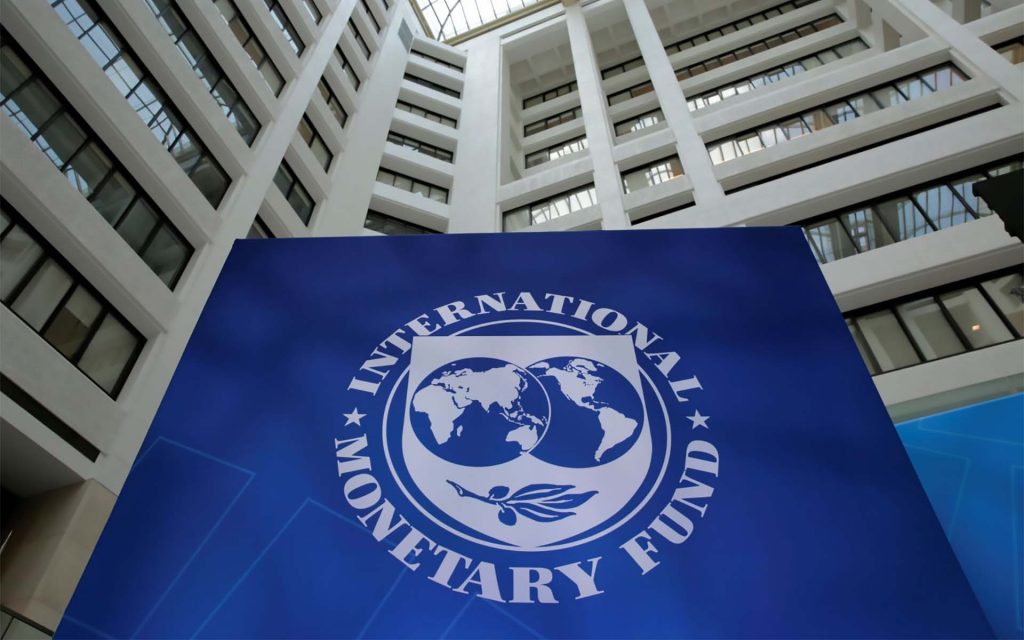CEM REPORT, ECONOMY| Nigeria’s economic reform journey takes a positive turn as the International Monetary Fund (IMF) throws its weight behind President Bola Ahmed Tinubu’s economic policies.
This endorsement, outlined in the recent Article IV Consultation report, signifies a critical step towards restoring macroeconomic stability and achieving inclusive growth.
IMF Commends Focus on Revenue Collection
The IMF lauds the administration’s “bold reforms” – a stark contrast to the cautious approach of previous administrations. These reforms prioritize revenue collection, a long-standing challenge hindering Nigeria’s ability to invest in social programs and infrastructure development.
“Nigeria’s low revenue mobilization constrains the government’s ability to respond to shocks and promote long-term development,” stated the IMF’s Executive Directors. According to a 2023 World Bank report, Nigeria’s tax-to-GDP ratio sits at a concerning 6%, significantly lower than the sub-Saharan African average of 18.1%.
The new administration’s focus on plugging these leakages, including improvements in non-oil revenue collection, has garnered IMF approval. However, concerns remain regarding the effectiveness and fairness of these measures.
Inflation and Monetary Policy
Nigeria, like many countries, faces the dual challenge of curbing inflation while stimulating economic growth. The IMF emphasizes the importance of maintaining a tight monetary policy and flexible exchange rates to combat inflation, which stood at a staggering 19.6% in March 2024.
The recent hike in interest rates by the Central Bank of Nigeria (CBN) aligns with the IMF’s recommendations. However, this policy can also dampen economic activity and lead to job losses. Striking the right balance between controlling inflation and fostering growth remains a complex challenge.
One positive step highlighted by the IMF is the CBN’s move towards an inflation-targeting regime. This strategy, if implemented effectively, could provide greater transparency and predictability in managing inflation. However, the IMF emphasizes the importance of strengthening the CBN’s independence to ensure a smooth transition.
Social Safety Nets
The reinstatement of the cash transfer program, aimed at alleviating poverty and food insecurity, received praise from the IMF. This program, initially introduced in 2016 but scaled back in recent years, provides a vital lifeline for millions of Nigerians.
“The cash transfer program is essential in combating acute food insecurity, particularly for the most vulnerable populations,” acknowledged the IMF directors. However, they cautioned that the program’s effectiveness hinges on successfully scaling it up alongside a robust revenue mobilization strategy.
Strengthening Institutions and Building Resilience
Beyond immediate economic concerns, the IMF highlighted the importance of long-term reforms that bolster Nigeria’s economic institutions and build resilience for the future. Priorities include:
Increased Minimum Capital Requirements for Banks: Strengthening the banking sector’s stability by raising the minimum capital requirements for banks.
Regulatory Reforms: Phasing out the regulatory forbearance measures introduced during the pandemic to encourage responsible lending practices.
Human Capital Development: Investing in education and skills training to improve the workforce’s competitiveness and attract foreign investment.
Boosting Agricultural Productivity: Modernizing the agricultural sector to ensure food security and diversify the economy away from its dependence on oil exports.
Climate Resilience: Implementing measures to address the growing threat of climate change on Nigeria’s economy and infrastructure.
The Lived Experience of Nigerians
While the IMF’s endorsement signifies a positive step towards economic recovery, the lived experience of many Nigerians paints a different picture. High inflation continues to erode purchasing power, wages remain stagnant, and income inequality persists.
This disconnect between the IMF’s technical assessment and the daily struggles of Nigerians underscores the complexity of economic reform. Balancing long-term economic health with immediate social needs requires careful calibration and effective communication with the public.
Read Also: Globacom will support government’s digital literacy campaign – Bella Disu
If You Ask Me
The IMF’s endorsement of President Tinubu’s economic reforms offers a glimmer of hope for Nigeria’s economic future. However, the success of these policies will hinge on their effective implementation, ensuring they translate into tangible benefits for all Nigerians. Addressing social concerns, diversifying the economy, and building long-term resilience will require continued commitment and collaboration between the government, the private sector, and the public. Only then can Nigeria truly unlock its full economic potential.














